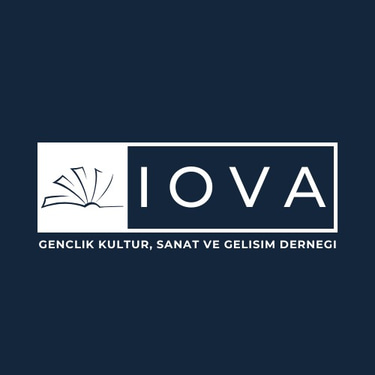
FLY
Financial Literacy for Inclusion
Financial Literacy: A combination of financial awareness, knowledge, skills, attitudes, and behaviors necessary to make sound financial decisions and ultimately achieve individual financial well-being.
In recent years, both advanced and emerging economies have increasingly recognized the importance of ensuring their citizens are financially literate.
A lack of financial literacy contributes to poorly informed financial decisions, which can have profound negative effects on both personal and, ultimately, global financial resilience. Consequently, financial literacy is now globally acknowledged as a fundamental life skill, and targeted financial education policies are regarded as a vital element of economic and financial stability and development.
Our Project Objectives:
To cultivate a Financial Culture among low-skilled adults. Having a financial culture also helps us make environmentally positive choices for ourselves and society.
To encourage low-skilled adults to learn about financial culture.
The project works to enhance adult education and raise financial awareness and confidence in society by offering programs for adults and their families at all age levels.
The project aims to be a simple guide accessible to everyone, helping find the best ways to manage money while considering not only our own lives but also those of others and the planet.
It provides all citizens with essential tools today to build a peaceful, secure, and sustainable future for themselves, their families, and the planet.


Partners attending the closing meeting of the Financial Literacy: FLY project.
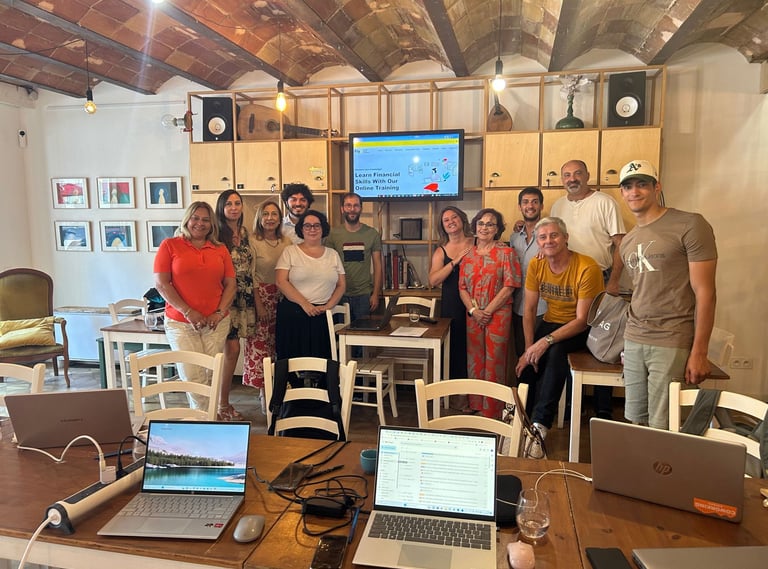

Marseille, France – July 5, 2023 – The city of Marseille hosted the closing meeting of the FLY Project (Financial Literacy for Inclusion). The event brought together partners from across Europe and marked the successful implementation of the project’s transformative journey to enhance financial literacy among low-skilled adults.
The meeting served as a platform to discuss the project’s status through significant milestones achieved and the final steps required to successfully conclude the initiative.
FLY, a joint initiative co-funded by the European Commission’s Erasmus+ Program, brought together a consortium of eight partners from five different countries: Belgium, France, Italy, Spain, and Turkey.
The FLY project offers online financial education through its Open Educational Resources (OER) platform!
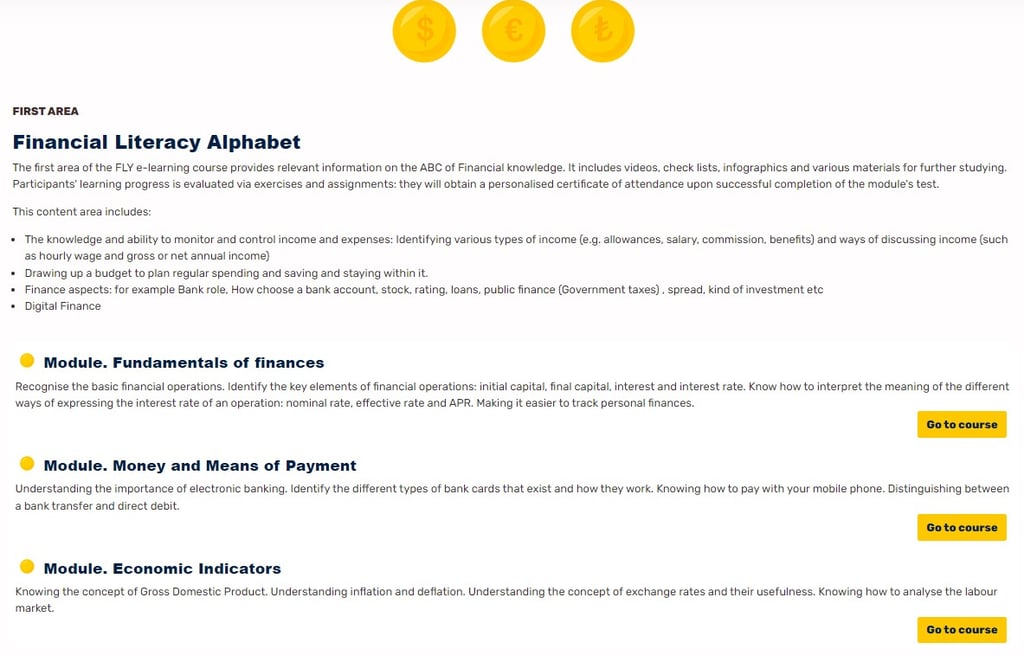

The internationally funded Erasmus+ financial literacy project, FLY – Financial Literacy for Inclusion, has made all educational materials developed by the project partners available through its training section on the Open Educational Resources (OER) platform at https://www.fly-project.eu/training.php?lang=EN.
With this initiative, all courses designed to promote financial security are now publicly accessible free of charge.
Users can access all training materials completely free and without prior registration via the link above, easily navigating through different modules and learning areas that provide keys to optimizing money management and gaining greater autonomy in fundamental financial matters.
This resource is aimed at anyone seeking to identify, assess, and make their own financial decisions regarding their personal financial situations.
The new online training tool is offered in five languages (English, Spanish, Italian, French, and Turkish) and is divided into three main sections:
The Alphabet of Financial Literacy
Financial Decision-Making and Management
Finance for Well-being
The FIRST SECTION: The Alphabet of Financial Literacy covers the following modules:
Module 1: Fundamentals of Finance
Module 2: Money and Payment Instruments
Module 3: Economic Indicators
The SECOND SECTION: Financial Decision-Making and Management modules include:
Module 4: Savings Products – Deposits
Module 5: Financing Options, Loans, and Debts
Module 6: Household/Personal Budget Management
Module 7: Specialized Products
In the THIRD SECTION: General Finance, you will learn about:
Module 8: Financial Advisory
Module 9: Risks and Dangers of Finance
Module 10: Ethical Finance for a Fair Society
Through diverse educational resources such as infographics, presentations, self-assessment tests, and a specially designed tool to measure users’ financial knowledge, citizens can broaden their understanding of the value of money and savings, as well as the real needs behind economic decisions like risk, saving, investing, borrowing, or transactions.
This training, validated by subject-matter experts, aims to target the best financial practices that also positively impact environmental protection on an individual level.
The OER platform, hosting these materials and other project results—one of the cornerstones of the FLY project—was developed by a consortium of eight organizations from five European countries (Belgium, Spain, France, Italy, and Turkey).
From a digital transformation perspective, this group addresses financial literacy by supporting the use of digital technologies in adult education and promoting new learning opportunities especially for those who require higher levels of financial knowledge, skills, and competencies.
Currently, the partners are in the Testing and Validation phase of the training content, targeting 140 final beneficiaries, including representatives of target groups, professionals, and educators. The curriculum will be presented internationally to a group composed of representatives of the target groups and relevant stakeholders (both direct beneficiaries of the training content and other stakeholders active in adult education, digital and media literacy, etc.).
An internal and joint dissemination plan for the pilot version of the training content has been accepted by the partners.
For more information about the FLY project, please visit: https://fly-project.eu/
A practical tool to assess financial literacy!
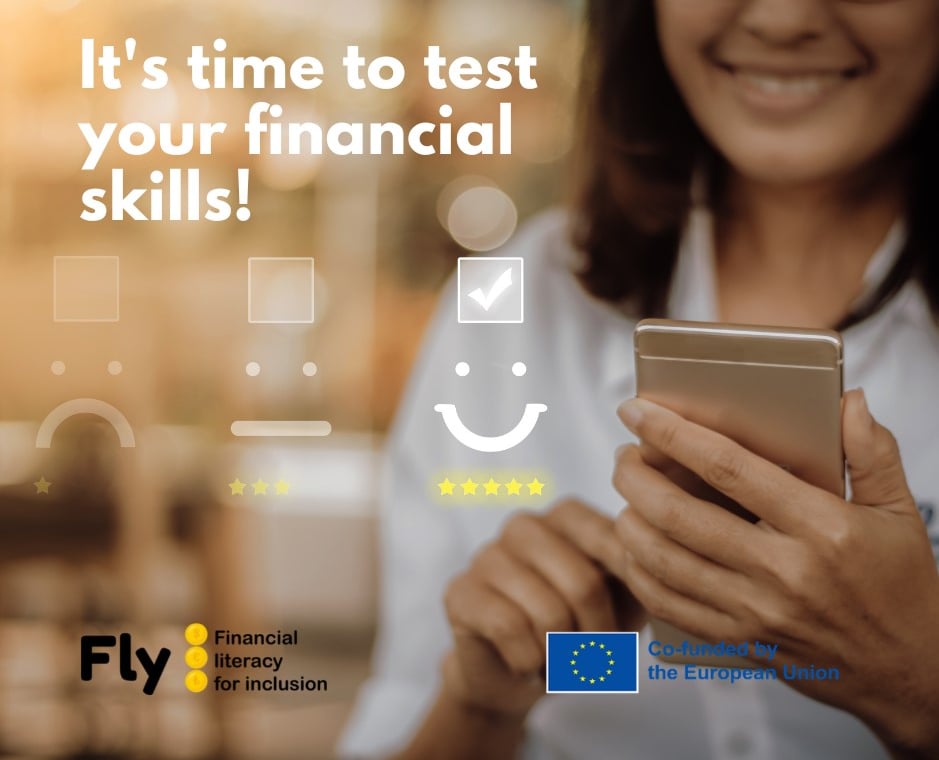

We are pleased to announce that the self-assessment tool for basic financial competencies is now available online! This tool was developed as part of the FLY – “Financial Literacy for Inclusion” project, funded by the European Commission’s Erasmus+ program.
Why do we offer a tool to assess financial literacy?
Financial literacy is a fundamental life skill. We need financial competencies to make everyday decisions and a range of financial choices—such as which bank to open an account with, which mortgage to select, or how to manage our savings.
Financial literacy also protects against excessive debt, high-risk behavior, and fraud.
However, according to the 2020 OECD (Organisation for Economic Co-operation and Development) adult financial literacy survey, about half of the adult population in the EU lacks sufficient financial knowledge.
Therefore, the FLY project’s self-assessment tool is an important part of the learning pathway offered by the platform. Through 15 multiple-choice questions, users’ skills are tested on topics including inflation, simple and compound interest rates and how to calculate them, budgeting, gross and net income, payment instruments and their features, and much more.
In the latest version of the platform, after completing the self-assessment test, users will be recommended specialized training courses currently in preparation.
Test your financial skills now by taking the FLY self-assessment test accessible via the link below:
https://www.fly-project.eu/sat_tr.php?lang=TR
Additional resources and tools for assessing financial literacy levels have been carefully selected by FLY partners from those already available online and gathered in the following section:
https://www.fly-project.eu/repositories_tr.php?lang=TR
For more information about the FLY project, please visit: https://fly-project.eu/
FLY Project is now out!
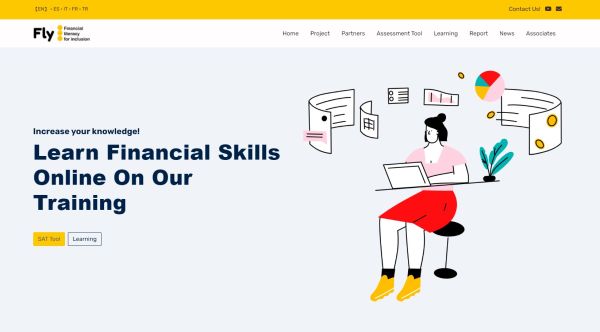

The official FLY website serves as a repository for the project’s outputs, results, news, and links, and will act as the Open Educational Resources (OER) platform to provide target groups with access to FLY resources and educational materials.
FLY is a project co-funded by the European Commission’s Erasmus+ Program that aims to create a financial culture among low-skilled adults and engage them in financial learning. It will support the continued development of financial literacy among adults with low skills and provide all citizens with essential tools needed today to build a peaceful, secure, and sustainable future for themselves, their families, and the planet.
The project officially began in February with the first online transnational meeting, where partners had a valuable opportunity to discuss the overall project implementation plan, timelines, and upcoming tasks. One of the initial activities was the development, testing, and deployment of the Open Educational Resources (OER) Platform.
The FLY Platform serves as the main showcase for the project’s results and the largest, most tangible channel for international visibility. It is fully free and accessible in five languages (EN, ES, IT, FR, TR) without any registration or login required. The FLY website is now online at https://fly-project.eu/.
Over the next two years, the platform will host and integrate all major achievements of the consortium. Each section of the FLY Platform will act as an independent library of the corresponding output.
The “Assessment Tool” section will include a practical instrument for measuring financial knowledge, behaviors, and attitudes to assess financial literacy—useful for comparing financial inclusion and literacy levels across countries.
Free low-skilled adult education courses developed by FLY will be published in the “Learning” section; content will be fully free and organized into learning areas:
The Alphabet of Financial Literacy
Risks and Dangers
Finance for Well-being
The “Reports” section will host the “Ethical and Sustainable Finance in Europe” report—an output of high strategic value for better understanding the role of banking, finance, and social and ethical finance.
Additionally, interested organizations will be able to join the FLY community and become associated partners, so the “Partners” section will focus on the project’s wider impact and dissemination.
For more information about the FLY project, please visit: https://fly-project.eu/
The FLY Project has officially started!
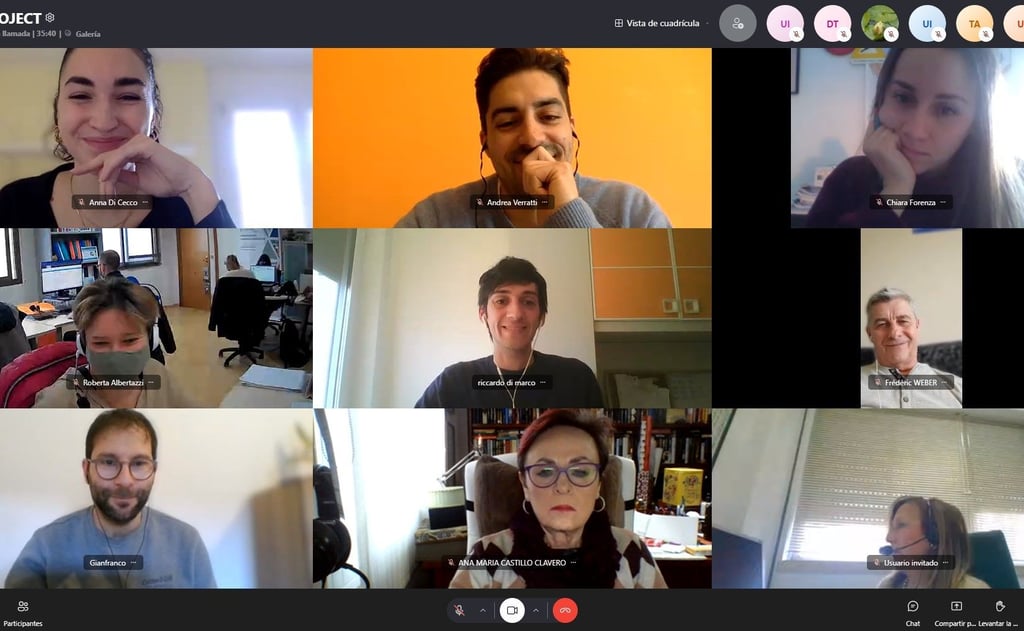

The FLY Project Has Officially Started!
The consortium participated in the online Kick-Off Meeting of FLY – Financial Literacy for Inclusion, a project co-funded by the Erasmus+ Program.
On February 2, 2022, the consortium, consisting of eight partners from five different countries (Belgium, France, Italy, Spain, and Turkey), took part in the online Kick-Off Meeting of FLY, co-funded by the European Commission’s Erasmus+ Program.
The Kick-Off Meeting, organized by Association FenêtreS (Rhône-Alpes – FR), was initially planned to be held in Tassin la Demi-Lune but was rescheduled to an online format due to COVID-19 restrictions.
FLY aims to create a financial culture among low-skilled adults by engaging them in financial learning. Having a financial culture helps individuals, society, and also benefits the environment by supporting positive decision-making. FLY develops and distributes a simple guide accessible to everyone on the best ways to manage money, considering not only our own lives but also the impact on others and the planet.
OECD’s Principles and Good Practices for Financial Education and Awareness recommend that financial education be accessible to everyone, start as early as possible, and be taught in schools. Including financial education in school curricula (at all levels) is an equitable and efficient policy tool. Financial literacy transcends all economic boundaries, from low-income to high-income families, and even well-educated, high-income adults may lack budgeting skills or effective money management.
According to the Global Financial Literacy Survey, financial literacy in 2020 was highest among adults aged 35 to 44, lower among those under 35, and even lower in adults over 50.
Based on this, over the next two years, FLY will continue to promote financial literacy development among adults with low skills and provide all citizens with essential tools needed today to build a peaceful, secure, and sustainable future for themselves and their families. Its innovative methodology is demand-driven and based on bottom-up approaches, leading partners in creating various strategic outputs, including:
The multilingual FLY Platform (OER PLATFORM)
A Practical Tool to Assess Financial Literacy
FLY Free Financial Learning for Low-Skilled Adults
A report on Ethical and Sustainable Finance in Europe
During the meeting, the consortium discussed the overall project implementation schedule, setting timelines and related tasks for the upcoming months.
The official FLY website will serve as a repository of the project’s outputs, results, news, and links. The Practical Tool to Assess Financial Literacy will be designed to measure financial knowledge, behaviors, and attitudes, helping to compare financial literacy and inclusion levels across countries. The two subsequent project outcomes will be the development of free financial learning courses for low-skilled adults (FLY Free Financial Learning) and a report on Ethical and Sustainable Finance in Europe.
As İncirliova Youth Culture, Art and Development Association, we aim to disseminate the project objectives locally and collaborate to ensure the project results reach the target audience, maximizing the number of adults reached.
For more information about the FLY project, please visit:
FLY official website: https://fly-project.eu/
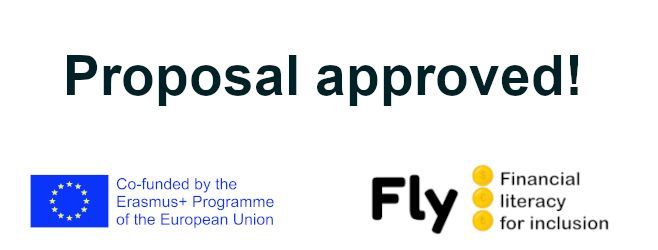

FLY Project Approved
On October 27, the French Erasmus+ National Agency announced the approval of the FLY – Financial Literacy proposal under the KA Cooperation Partnerships in Adult Education.
According to the Global Financial Literacy Survey, financial literacy in 2020 was highest among adults aged 35 to 44, lower among those under 35, and even lower among adults over 50. Additionally, the OECD Principles and Good Practices for Financial Education and Awareness recommend that financial education be accessible to all, start as early as possible, and be taught in schools.
Based on this, the aim of the FLY project is to create a financial culture among low-skilled adults by engaging them in financial learning. Having a financial culture helps individuals, society, and also supports positive decisions regarding the environment. Over the next two years, FLY will continue to promote financial literacy development among adults with low skills and provide all citizens with essential tools needed today to build a peaceful, secure, and sustainable future for themselves, their families, and the planet.
The FLY project addresses the European Commission’s horizontal priority on digital transformation through digital readiness, resilience, and capacity building. Specifically:
FLY will support active citizenship and ethics in lifelong learning.
FLY will promote the use of digital technologies in adult education, learning, assessment, and participation.
FLY will provide new adult education opportunities, especially for adults with low levels of skills, knowledge, and competences.
FLY will be co-funded by the European Commission’s Erasmus+ Program and run for 24 months from 2021 to 2023. The project was submitted and will be implemented by a partnership of eight organizations from five European countries (Belgium, France, Italy, Spain, and Turkey).
For more information about the project and its partners, please visit: https://fly-project.eu/
